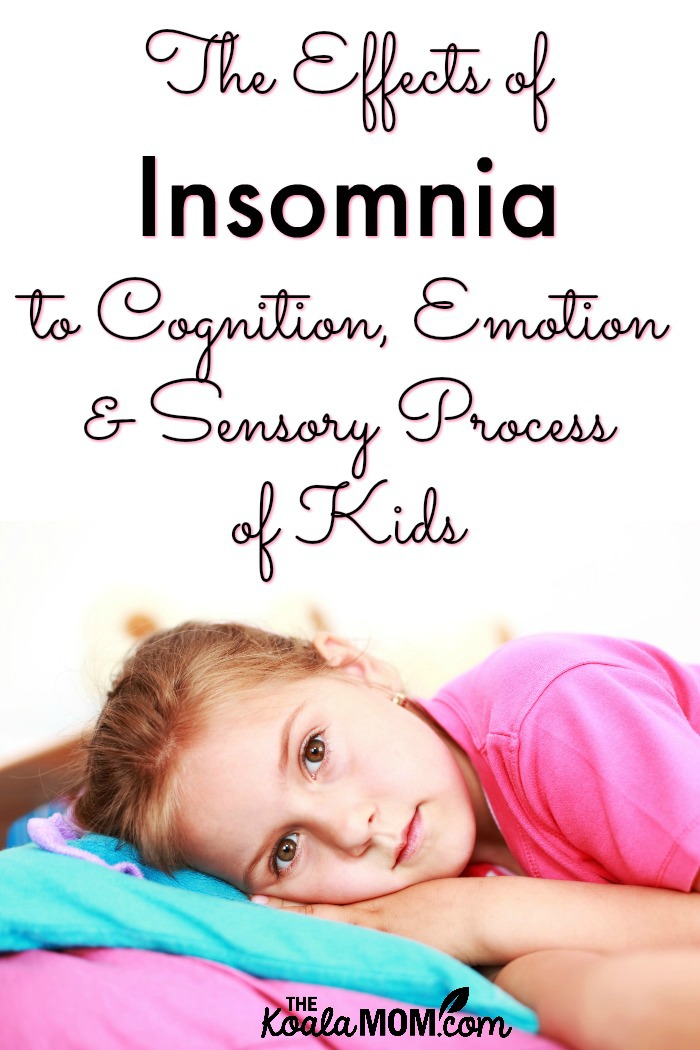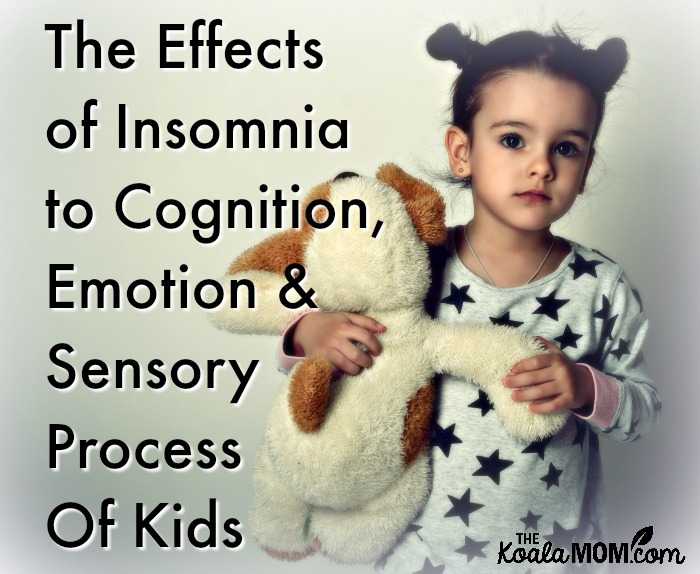Over the past few years, I’ve become more and more aware of the importance of sleep for myself and, by extension, for my children. So many things in our busy, technology-filled lives today seem to conspire against good sleep. Here, Aby Nicole shares the effects of insomnia on children and some practical tips for helping your kids get the sleep they need.

For parents, putting children to sleep can be a challenge. The task requires persuasion, creativity, and tons of patience. Unfortunately, many parents are no longer putting enough effort in to ensure their kids get sufficient sleep at night. Their hectic lifestyle and unregulated use of technology are partly to be blamed.
Studies show that insufficient sleep can increase one’s risk to obesity, high blood pressure, heart problems, and depression. It can also cause poor memory and lack of concentration. The impact of sleep deprivation can be more serious for children, who are undergoing crucial development.
“Not only do pediatric sleep problems affect child health, but they can impact family dynamics and parental or sibling sleep,” Stanford Medicine warns.
It’s important for parents to know how sleep disorder affects children and the best ways to ensure your kids get enough sleep each night.
Cranky, sleep-deprived children
How many sleeping hours should your kids get each night? The National Sleep Foundation recommends that toddlers aged 1 to 2 years should be sleeping for 11 to 14 hours per day and preschoolers aged 3 to 5 years must get 10 to 13 hours of sleep. Schoolchildren aged 6 to 13 years must sleep for 9 to 11 hours daily while teenagers aged 14 to 17 years should be sleeping for 8 to 10 hours.
Does your child throw tantrums often? Is he always cranky and in a foul mood? Dr. Judith Owens and her team noted that sleep deficiency have adverse cognitive and behavioral effects among kids. This is similar with sleep-deprived adults who suffer irritability, anxiety, and depression. Harvard Medical School warns that chronic insomnia may increase one’s risk of developing a mood disorder.
Learning difficulties and sleep deprivation
Sleep disorder among children and teens is common. Their access to computers, smartphones, and other electronic gadgets is aggravating the problem. Do you know that the blue light from these devices is messing with your body clock?
“Computer screens and most light bulbs emit blue light, to which your eyes are particularly sensitive simply because it’s the type of light most common outdoors during daytime hours. As a result, they can disrupt your melatonin production,” reports online medical resource Mercola. Melatonin is a hormone that helps regulate sleep and wake cycles.
Children who stay up late playing online games or browsing the Internet are likely to have difficulties learning. Harvard Medical School notes that there are three brain processes involved in learning. Acquisition is the process by which the brain receives information. Consolidation is the phase by which brain connections are strengthened. Recall is when the brain uses stored information. Sleep deprivation can cause sensory processing disorder in kids, or the condition in which the brain struggles to acquire and consolidate information.

Childhood behavioral insomnia
Is your child suffering from childhood behavioral insomnia? Kids, especially toddlers and preschoolers, have higher energy levels than adults. After running around the house all afternoon, they still have the energy to play after dinner. Behavioral insomnia is a condition where kids stay awake past their bedtime.
As a parent, it’s your task (as tough as it is) to make sure that they get adequate sleep at night by going to bed on time. Sleep experts advise strictly imposing a sleep schedule that must be followed on school days and during vacation.
UCLA Health suggests planning a bedtime routine every night: “Change clothes, wash up, brush his teeth, and prepare the bed. Then set aside 10 to 30 minutes of special quiet time with your child. Read a book, sing songs or play a quiet game.” Avoid physical activities such as jumping and wrestling that will keep them active.
Harmful effects of insomnia on kids
Insomnia, or the difficulty of falling and staying asleep, is a common sleep disorder among children. It can last for a few nights or a couple of weeks. However, it can worsen during adolescence if not addressed early. Insomnia can cause fatigue, irritability, and problems concentrating and remembering. Teens suffering from insomnia are often withdrawn and manifest symptoms of anxiety and depression.
Delayed Sleep Phase Syndrome
People with Delayed Sleep Phase Syndrome (DSPS) fall asleep two or more hours beyond their bedtime. This makes it hard for them to get up in the morning. DSPS may develop in early childhood but usually manifests during adolescence. Stanford Health reports that 7 – 16% of teens and young adults are suffering from this sleep disorder.
If your child’s DSPS is affecting his or her health and social life, it’s advisable to seek professional help. There are two ways to treat DSPS. Bright light therapy involves the use of light to gradually shift sleeping pattern. Chronotherapy is a method that resets the body clock by slowly delaying bedtime.
Promote better sleep habits in your household
The most important technique to improve your kids’ sleeping habits is to impose rules concerning bedtime. Be consistent. Set a specific hour for their bedtime routine and make sure they’re not using any gadget at least an hour before bedtime. The same guidelines must be imposed on your teens who tend to stay up past midnight on social media. Regulate your family’s use of these electronic gadgets.
Create a conducive sleeping environment. Their room temperature must be kept cool for optimal sleep. Block outdoor lights and noise. You can mount thick curtains or blinds, and install a noise cancellation machine in their bedroom. Get only the perfect mattress for children that will support their body and promote comfortable zzz’s all night.
Putting kids to sleep is real struggle for many parents. It takes a lot of patience, persuasion, threats of punishment, and other tactics every single night. At first, you’d need to strictly impose rules on toddlers and preschoolers. Let them know of the importance of sufficient sleep as they grow older. Be consistent. By the time they reach their teenage years, proper sleep habits will then be a part of their lifestyle. Most importantly, be a role model. As the saying goes, practice what you preach!
Aby Nicole is a qualitative researcher and passionate writer. She writes mostly about health, psychology, technology, and marketing. She owns www.aboutpossibilities.com. You can follow her via twitter at @abyleague.

2 Comments
Great post!
Thank you, Doris! ^_^